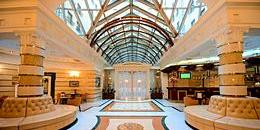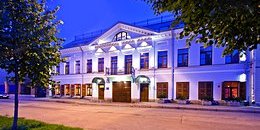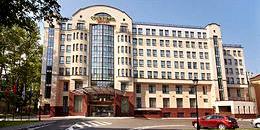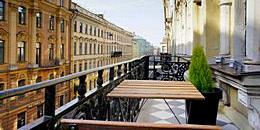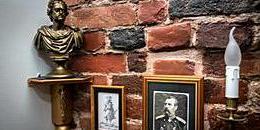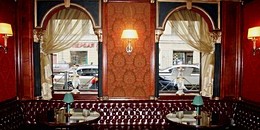Naval Cathedral of St. Nicholas
The golden Baroque spires and domes of St. Nicholas' Cathedral (known locally as the Sailors' Cathedral) rises among the trees at the bottom of Ulitsa Glinki and shines above the bland residential and commercial buildings in the area. It is home to a number of revered 18th-century icons and a fine carved wooden iconostasis. Its beautiful bell tower overlooks Kryukov Canal.
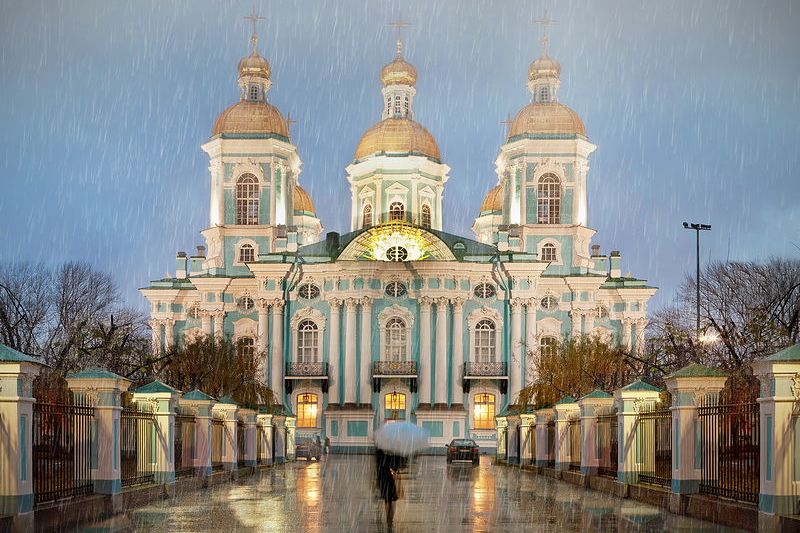
The first church was built here in 1743, on the banks of Kryukov Canal, which links the Moika and Fontanka rivers just south of Teatralnaya Ploschad. The cathedral and green space in front of it are located in a bend of Kanal Griboedova in an especially picturesque part of the city.
The area was originally settled by sailors in the time of Peter the Great, and the first, wooden chapel was built for them and bore the name of St. Nicholas the Miracle-Worker. As the area grew along with the new capital, Empress Elizabeth issued a decree to build a stone church for the regiments living here. Admiralty architect Savva Chevakinsky was commissioned to design and build it. However, before construction could begin, the ground where the church's foundation was to be built had to be raised by two meters to protect it from floods.
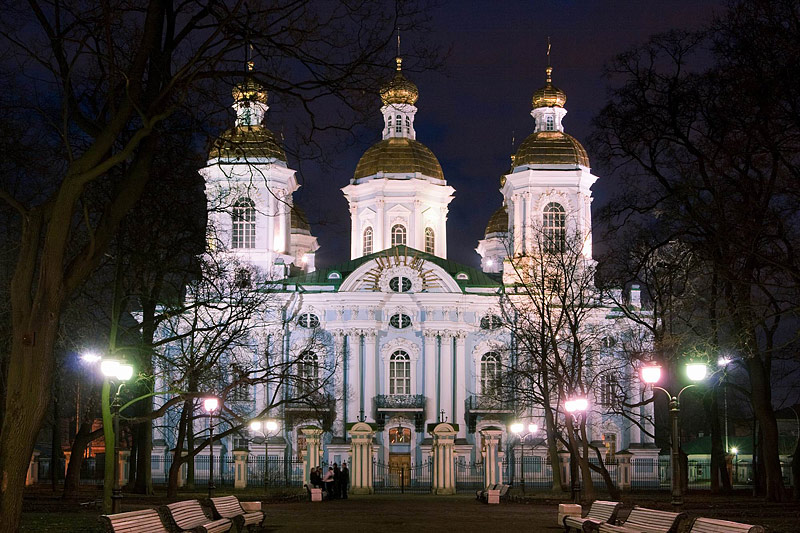
Construction of the new stone church began in 1753, and the main altar in the current cathedral was consecrated in 1760 in the presence of Empress Elizabeth. The cathedral actually consists of two churches, an upper church and a lower church. The church officially became a naval cathedral in July 1762 by order of Catherine II. Today, it is one of the best - and last remaining - examples of Baroque architecture.
The walls of the cathedral are decorated with scenes from the history of the Russian Navy. In 1907, two marble plaques were hung on the south wall of the upper church in honor of sailors who died in the Russo-Japanese War in 1904-5. At the same time, in the square next to the cathedral a memorial was erected to all the sailors of the battleship Alexander III who lost their lives in 1905.
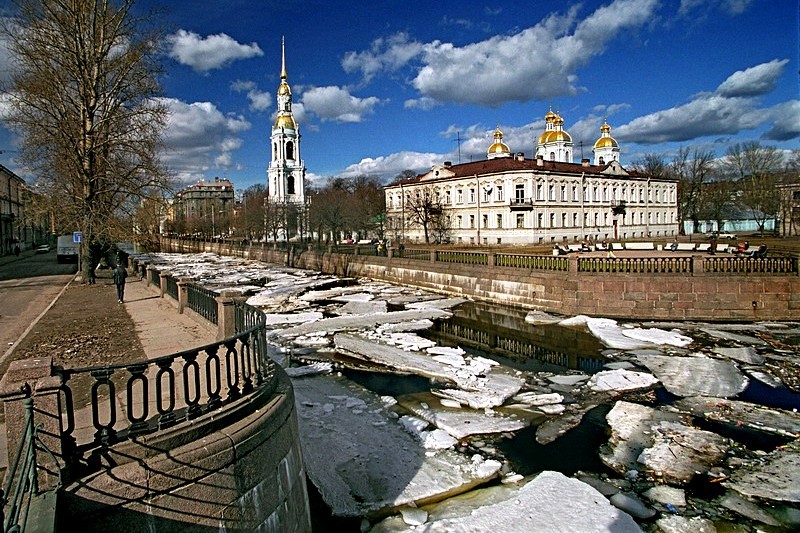
The cathedral houses 10 spectacular icons in gold frame that were a gift from Catherine the Great. The icons portray saints who are celebrated at Russian Navy celebrations. One of the most revered places in the cathedral is the image of Nicholas the Miracle-Worker, given to the church by Greek sailors, which was taken from Russia by the French in 1812, and returned to Nicholas I by the Prussians in 1835.
St. Nicholas Cathedral is one of a very few cathedrals in the city that was not closed in Soviet times. In 1941, it became the official residence of Metropolitan of Leningrad and Novgorod Alexey (Simanskiy), who served in the cathedral from 1941 to 1944 during the 900-day siege of the city.
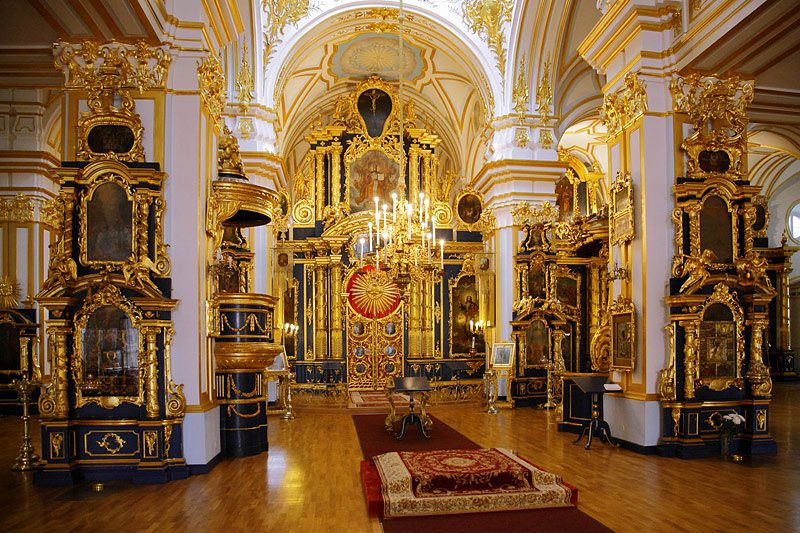
In 1989, a memorial plaque was installed in the cathedral to honor the 42 sailors who lost their lives off the coast of Norway. The inscription reads "In eternal memory of the sailors of the Russian Float who were taken by the sea on April 7, 1989."
| Address: | 1, Nikolskaya Ploshchad |
|---|---|
| Metro: | Sennaya |
| Open: | Daily 7 am to 7 pm. |
| Telephone: | +7 (812) 714-7085 |
| Website: | http://www.nikolskiysobor.ru/ |

